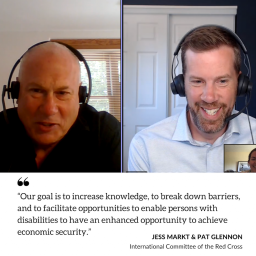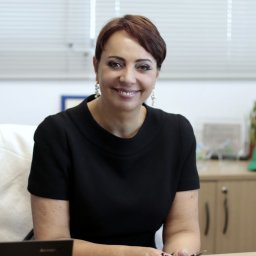A relationship built on trust
Stacey Fruitman (SF): Business is changing – it’s becoming more personal. So it’s imperative you have a relationship with your investor where you feel that they trust you, and don’t underestimate the importance of their belief in you. Get to know them and their underlying mission, and find out what they expect from you.
Standing out from the crowd
SF: Your business is going to shift and go through changes, so impact investors want to see that an entrepreneur is resilient, and can “pivot” between having a business mindset of growth and staying open and collaborative.
Konstantin Hapkemeyer (KH): Another thing an investor will look for is an unfair advantage – a business that can prove they have access, knowledge, or legal protection that others don’t have. Often investors will look to see who else is at the table, wanting to see who else is ready to support you.
Targeting the right kind of investor
KH: To begin with, research companies that are similar to yours that have already gone through fundraising, and find out who the investors in those businesses are.
SF: Different investors have different superpowers and, depending on the stage that you’re at, you will have specific requirements. If you are looking for seed stage investment, you will want an institutional investor that can help you with scalability and introduce you to other investors. If your investor can connect you to other funds as you grow, that’s the best possible referral.
Corporates can also be a very interesting source of funding if your business has synergy with what they’re doing.
KH: Don’t waste your time – look for investors where your probability of success is high!
Avoiding pitfalls
KH: It can take up to six months to close an investment round, so the latest point to start raising money is typically when you have six months of runway – ideally earlier.
Have all the documents in place. It can be very frustrating for an investor who asks for material which you do not have on-hand.
In a bid to attract the investor, some leaders do embellish, make untrue claims or lie. The industry is very small, and if an investor has even the slightest feeling that someone is misrepresenting facts, it will be shared with others.
SF: Whilst it can sometimes be a frustrating and long path, when investors lead you along before giving a ‘no’, it is part of the process and you have to remain patient.
Remember that if someone’s not treating you fairly, they’re not the right investor for you.
Make the right impression
SF: Your probability of success will be considerably higher if your pitch deck looks good. The best introductory decks are concise and clear.
KH: Make sure your story is well told, because this is the first document that most investors see and will reflect on how you and your business is perceived.
SF: Avoid making your first deck too long – it should be a conversation. You should include key metrics, especially in terms of the roadmap and the plan for the future.
Remember that it’s for the investor. They’re looking for you to outline your point of differentiation and why you are going to be able to take this on.
KH: Invest some time, and money, especially for a Series A deck where investors will be writing large cheques.
As a social entrepreneur, you will want to pitch your story. However, that is just one piece. Also focus on the investment opportunity. What investors really want to know is the problem you’re solving, but also what will you do with their money? What will their money get you? Is this a return that makes sense for them? Remember to focus on facts, as well as emotion.
___
to join the ‘Game on’ working group, alongside other leaders committed to delivering social impact through sport, apply to become a member of meaningful business here.


















